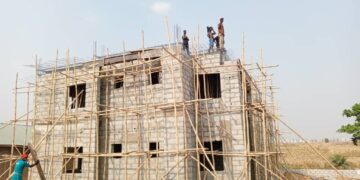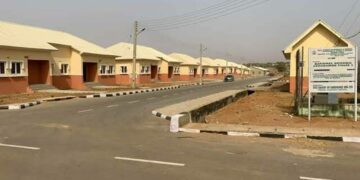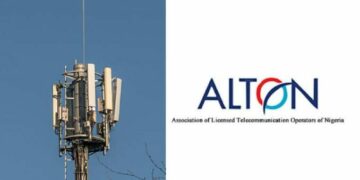The Nigerian Content Development and Monitoring Board (NCDMB) and SLB have unveiled the first cohort of their joint programme, the NCDMB-SLB Technology Enhancement Programme (N-STEP) on the sidelines of the 2023 Nigerian Association of Petroleum Geologists (NAPE) in Lagos.
According to the partners, the N-STEP program provides a unified framework for rapidly developing and deploying software solutions to address oil and gas challenges.
Deployed through a phased, multidimensional approach, the programme is focused on the development of software plugins by students for diverse oil field applications.
As part of its 2023 cohort, nine students representing three prestigious universities in Nigeria presented their innovative projects to stakeholders. The projects highlighted machine learning, Artificial Intelligence, and innovations that could unlock potential in the Nigerian oil & gas sector.
The universities represented by this cohort were: the University of Lagos; the Federal University of Petroleum Resources Effurun; and Abubakar Tafawa Balewa University Bauchi.
In his opening remarks at the unveiling Wednesday, executive secretary of NCDMB, Simbi Wabote, said: “The N-STEP programme is an industry-education partnership under NCDMB’s Adopt a Faculty Initiative for STEM courses.
It is designed to drive collaboration between industry, universities, and Government through Research and innovation, curriculum review, infrastructure, and equipment, and learning and knowledge exchange in Nigeria.
“Nigeria spends an estimated $400 million annually on foreign software, which is a huge drain on our Forex. We embraced the NSTEP to demonstrate our commitment to reverse this trend.
“The programme has also targeted undergraduates because we believe Nigerian youths have the innovation drive, to be solution providers and not job seekers.”
Speaking about the impact of the N-STEP programme,, group managing director, West Africa at SLB, Sops Ideriah said: “We want to empower software developers to create and deploy plug-ins that extend the utilization of E&P software platforms.
“This is why we collaborated with both the public sector and the best of academia to deliver a structured training program, where selected students will gain the knowledge and skills necessary to apply their expertise to develop innovative software solutions that address specific E&P industry challenges.
“The programme also provides mentorship, internship opportunities, and cutting-edge training tailored to industry needs, empowering future generations of innovators and leaders for the energy industry of tomorrow. Our joint ambition in this collaboration is to extend the program scope to cover a minimum of one university in each key region in Nigeria.”
For SLB, the N-STEP programme will not only serve to foster education but also to detect and eventually tap into local talent. “At the forefront of global technology, we are relentlessly looking for exceptional individuals with the potential to revolutionize the energy landscape. This program provides us with a strategic opportunity to identify and nurture future leaders within our organization,” Ideriah added.





